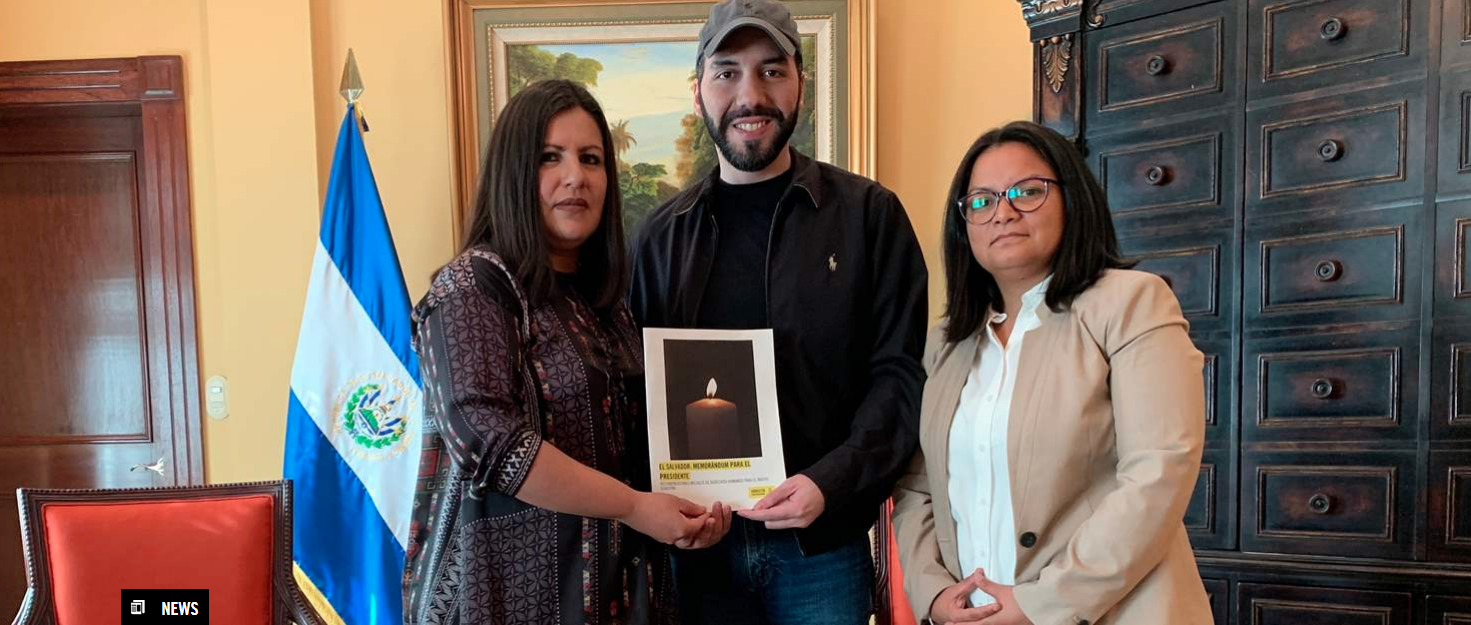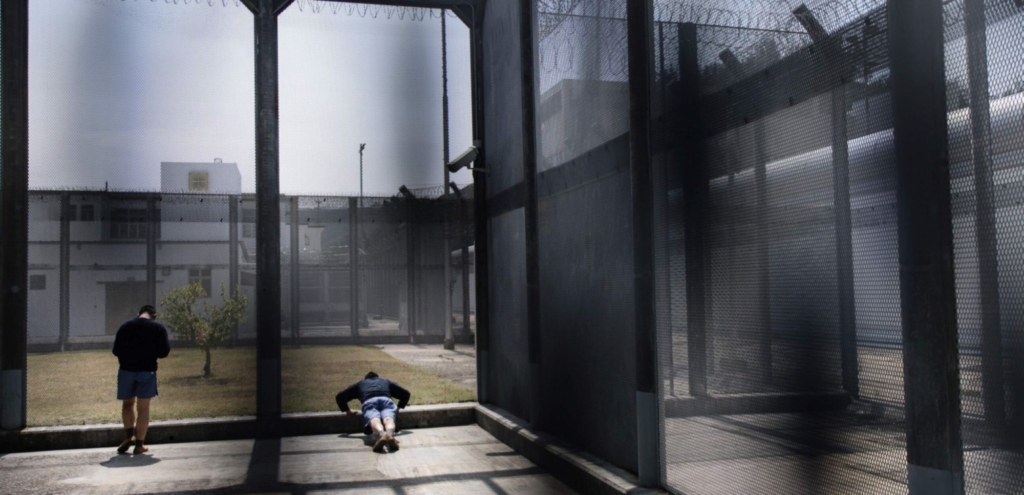El Salvador’s new government must promote and implement transformative human rights changes that fulfill the nation’s international commitments, said Amnesty International today in a meeting with President Nayib Bukele, who repeatedly vowed to respect human rights.
“We met with President Nayib Bukele to express to him our concerns about the grave human rights situation in El Salvador. We hope that his government will address these great challenges with determination and adopt without delay the changes the country needs to make human rights a reality,” said Erika Guevara-Rosas, Americas director at Amnesty International.
At a meeting in San Salvador, an Amnesty International delegation presented President Bukele with a memorandum containing initial recommendations for his government in six key areas: justice, truth and reparation for victims of the armed conflict; the rights of women and girls; human rights defenders; security policies and human rights; migrants and refugees; and foreign policy and human rights. All of these issues were agreed with civil society organizations and human rights movements, including victims.
“President Bukele’s government has a great opportunity to set El Salvador on a new course, but it also has a responsibility to ensure that human rights are central in decision-making and in the design and implementation of the nation’s public policies,” said Erika Guevara-Rosas.
“Given the enormous human rights challenges also faced by the neighboring countries of Guatemala, Honduras and Nicaragua, this is a deeply concerning time for Central America. We therefore urge El Salvador’s new government to take a proactive role in promoting the protection of human rights in the region.”
President Bukele pledged to create an inter-ministerial roundtable to discuss strategies to improve the human rights situation in the country. He also promised to open up to international scrutiny and allow access to different bodies, such as the Inter-American Commission on Human Rights. He was firm in his commitment to become a distinct voice in Central America and to condemn human rights violations committed in the rest of the region.
The Amnesty International delegation told him that, sadly, El Salvador is best known for two issues: violations of women’s and girls’ human rights through the total ban on abortion, and for the widespread violence in the country.
The president stressed that his government will not criminalize women and girls – especially those who live in situations of poverty – and will guarantee their sexual and reproductive rights. With respect to public security, he committed to implementing a comprehensive strategy that prioritizes an approach centered around prevention and rehabilitation. He also recognized the important work of Salvadoran civil society organizations and the role of human rights defenders in the country.
This constructive exchange must result in concrete action. Amnesty International is taking President Bukele’s word that he will push forward a human rights agenda, but will also be watching closely to ensure that El Salvador’s government complies with its international human rights commitments.
“Amnesty International will continue accompanying Salvadoran human rights organizations, who we hope will have the opportunity to share with the president their concerns and recommendations about the challenges facing the country as soon as possible,” said Erika Guevara-Rosas.
For more information or to arrange an interview, contact Lucy Scholey, Amnesty International Canada (English), + 613-744-7667 ext. 236, lscholey@amnesty.ca
ISSUES & COUNTRIES
AMNESTY INTERNATIONAL
Amnesty International is a human rights organization and global movement of more than 10 million people in over 150 countries and territories who campaign for human rights. We are independent of any government, political ideology, economic interest or religion and are funded by individuals like you. We believe acting in solidarity and compassion with people everywhere can change our world for the better.
CAMPAIGNS
CANADA
WORLDWIDE
REPORTS & PUBLICATIONS
PRESS RELEASES
- Amnesty International Canada condemns Alberta’s use of Notwithstanding Clause to prop up anti-trans policies
- Fossil fuel infrastructure is putting rights of 2 billion people and critical ecosystems at risk
- Sentencing of land defenders sends ‘chilling message’ about Indigenous rights in Canada
- Joint statement: People across Canada demand that Temporary Foreign Worker Program respect migrant workers’ rights and dignity
- Canada: First 100 days of new Parliament signal regression on human rights
PODCAST
Listen to Rights Back at You
We introduce you to fascinating people who are making change unstoppable. Hear powerful stories of resistance and solidarity and learn more about how you can take action now for human rights. This series connects the dots and passes the mic to people building a better future now. Together, we unravel the Canada you think you know and challenge the systems that hold back human rights.





















